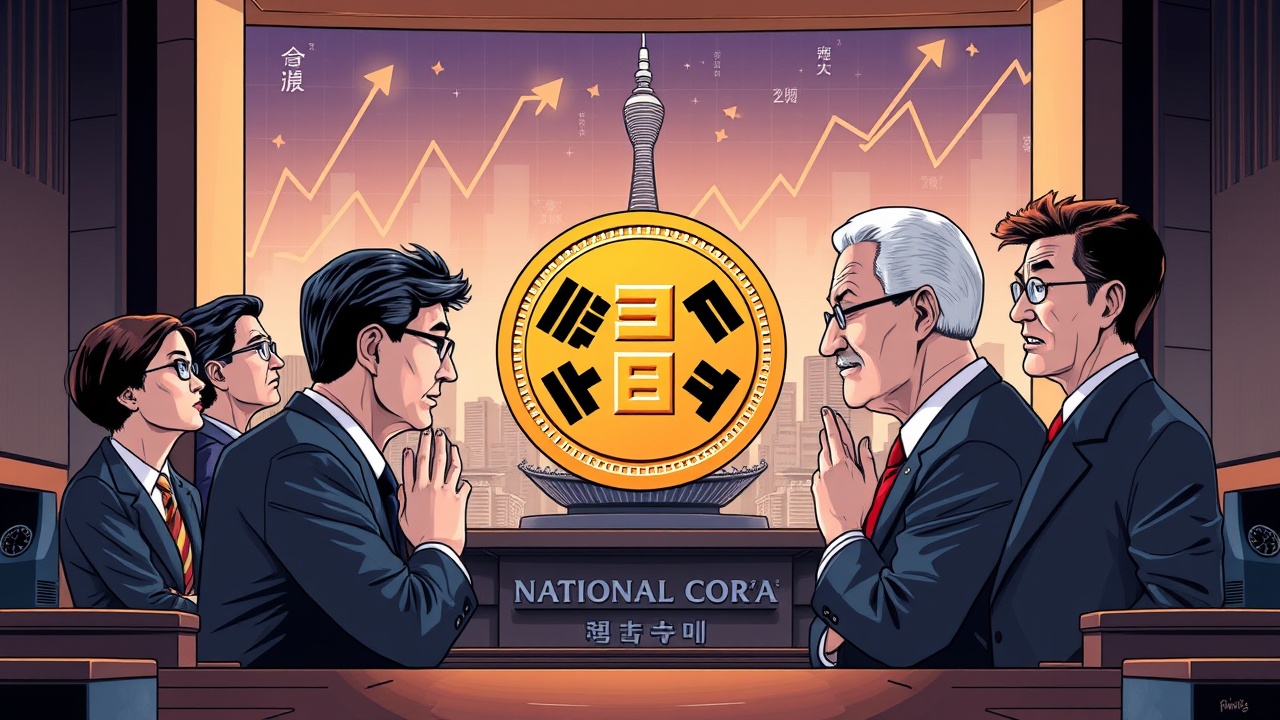Introduction
In a move indicative of the growing importance of stablecoins in the financial landscape, South Korea’s two major political parties have introduced separate bills aimed at regulating these digital assets. Lawmakers from the ruling Democratic Party (DP) and the opposition People Power Party (PPP) presented their proposals on July 28, but they have reached an impasse regarding the issue of interest payments on these tokens.
Legislative Proposals
The Democratic Party’s proposal, led by MP An Do-geol, is officially titled the “Act on the Issuance and Distribution of Value-Stable Digital Assets,” while the People Power Party’s draft, authored by Kim Eun-hye, is called the “Act on Payment Innovation with Fixed-Price Digital Assets.”
A common feature of both legislative efforts is the intent to integrate KRW-pegged stablecoins into South Korea’s financial framework. Both bills assign authority to the Financial Services Commission (FSC) for oversight of stablecoin regulations. Should the legislation pass, the FSC would hold power to control the issuance, distribution, and redemption processes of stablecoins, with the ability to issue emergency orders to manage potential market disruptions.
Regulatory Framework
A critical stipulation is that the FSC would be the exclusive authority for granting licenses for these digital assets, with all applicants required to be recognized financial institutions or joint-stock companies. International firms can only apply if they maintain a local presence in South Korea. Additionally, issuers must demonstrate substantial capital—specifically, a minimum of 5 billion won (approximately $3.6 million) and must maintain dedicated IT resources and stablecoin-focused personnel.
Debate on Interest Payments
However, a significant point of contention lies in the differing views on allowing interest payments on stablecoins. The Democratic Party advocates for a prohibition on interest-bearing tokens, citing concerns over volatility and potential monetary policy disruptions. In contrast, the People Power Party argues that allowing interest-bearing stablecoins could enhance the competitive edge of South Korean digital assets in global markets, facilitating their adoption abroad.
This debate reflects broader industry divisions, with some insiders indicating mixed opinions about the impact of interest payments on South Korea’s emerging stablecoin framework.
Market Readiness
Meanwhile, South Korean companies, including major banks and tech firms, are eager to establish stablecoin programs ahead of anticipated regulatory measures. This urgency is underscored by international developments, particularly the advancing GENIUS Act in the U.S., which has spurred interest from companies such as Amazon and Walmart to launch their own stablecoins to reduce transaction costs.
As Southeast Asia races to keep pace, major players in the South Korean market, like Kakao and Naver, along with credit card firms such as Lotte Card, are preparing to adapt to the forthcoming regulatory changes.




